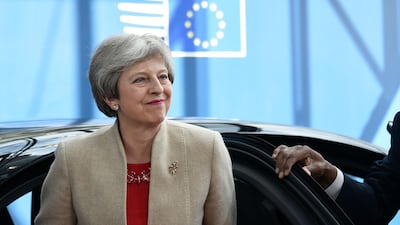Britain is to become the first major economy to adopt laws that require no fossil-fuel emissions by 2050 to fight climate change.
Prime Minister Theresa May said legislation to wipe out the UK’s net contribution to rising global temperatures will be put to members of Parliament, endorsing a report from advisers that shows what a carbon-neutral future would have to look like.
The radical move recommended by the government’s climate-change adviser has won backing across the political spectrum, even as debate about leaving the EU split UK politicians.
Urgency is building around efforts to contain an increase in the global temperatures.
Mrs May’s statement followed a report from oil major BP showing carbon emissions jumped the most in seven years in 2018, an indication that the world is falling behind in cutting pollution that is damaging the atmosphere.
"Standing by is not an option," Mrs May said on Tuesday. "Reaching net zero by 2050 is an ambitious target but it is crucial that we achieve it to ensure we protect our planet for future generations."
The UK has been one of the more successful countries in cutting emissions and it intends to stop burning coal for power generation by 2025.
Britain has slashed carbon dioxide output by 44 per cent since 1990 to the lowest levels since the 1890s, data from the Department of Business, Energy and Industrial Strategy shows.
A report from the independent Committee on Climate Change recommended wholesale changes to the way the UK generates, distributes and uses power.
It also advised on ways the public can change their habits, including fewer flights and driving electric cars.
There is broad political support from the main opposition Labour and Scottish National parties, as well as the Liberal Democrats.
Britain already has a target to cut greenhouse gases by 80 per cent by 2050, but the last fifth of that goal is likely to be the hardest reduction to make.
Politicians and industry will have to move quickly to get unproven technology, such as carbon capture and hydrogen in heating, to scale.
No current scenario that holds global warming to 1.5°C above pre-industrial levels happens without widespread of use of these technologies.
Mrs May also announced the establishment of a Youth Steering Group to advise on government priorities for the environment.

